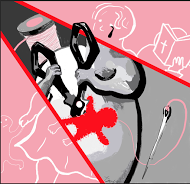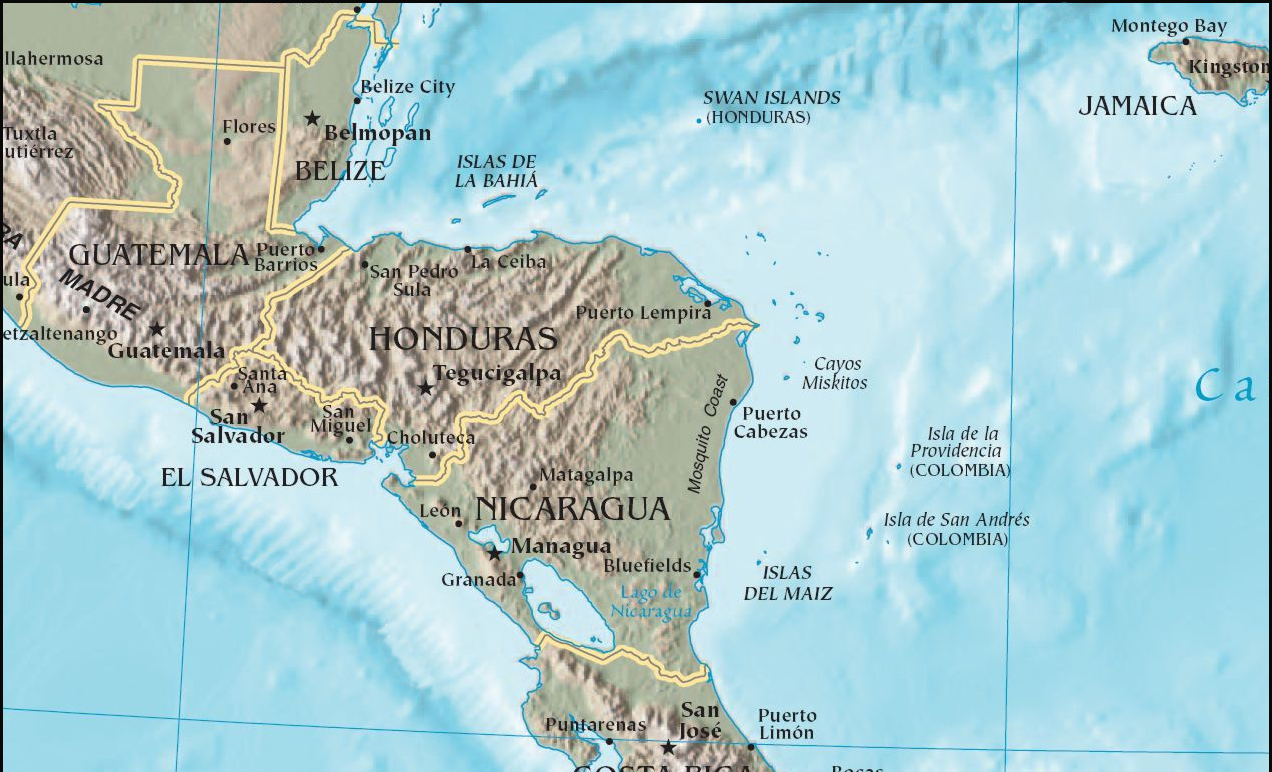Seven years ago, 18-year-old Carmen Guadalupe Vasquez Aldana was rushed to the hospital in her home country of El Salvador. Vasquez had been raped months earlier and was now suffering a miscarriage. After she gave birth to a stillborn child, police raided her hospital room and handcuffed her on charges of abortion, which would later balloon to aggravated homicide. Her unwarranted health nightmare was rendered a criminal case under El Salvador’s draconian reproductive rights laws, which criminalize miscarriages. El Salvador, along with its Central American counterparts Honduras and Nicaragua, is one of the seven countries across the Latin American and Caribbean region with a total ban on abortion. In January of this year, seven years into a 30-year prison sentence, the Salvadoran Supreme Court issued an unprecedented pardon for Vasquez, a decision that evoked praise from women’s rights and human rights organizations worldwide. While this is a victory for the reproductive rights movement in El Salvador, 16 women remain incarcerated in the country on miscarriage-related murder charges.
Despite taking steps towards equality for women, Central America’s tumultuous political history and inextricable relationship with the Catholic Church has established the region as the hemispheric epicenter of the oppression of women’s reproductive rights. Vasquez’s case may be worthy of celebration, but the pardoning of an 18-year-old who suffered a miscarriage may not signal a significant shift in tides given the entrenched political realities of harsh restrictions on women’s rights.
Extremism on abortion rights in El Salvador, Honduras and Nicaragua is complemented by policies in these countries’ regional neighbors — Guatemala, Mexico and Panama — whose near-total bans on abortion exempt only those cases in which the mother’s life is in direct jeopardy, a standard that cases of rape and incest often don’t meet. The stagnancy of grassroots reproductive rights movements, confounded by the regional rigidity of abortion legislation, is exhibited in one statistic: In 2008, 95 percent of the year’s abortions across Latin America were conducted under unsafe circumstances. The health risks for women enduring covert procedures are catastrophic, and El Salvador’s problematic policies — like many across the region — force women to risk their lives in clandestine abortion procedures.

Art by Goyo Kwon.
El Salvador’s regressive trajectory with regards to women’s reproductive rights can be traced back to the country’s civil war, which dragged on from the late 1960s into the 1990s. Tacit US involvement, government death squads and decades of political violence characterized this tumultuous era. By January 1992 — after the war had claimed 70,000 lives — the leftist rebel party, Farabundo Martí National Liberation Front (FMLN), finally signed a peace treaty with the right-wing, military-led government. This agreement would prove to indirectly, but decisively, alter the status of abortion rights in the country to the detriment of women’s health and safety. On one hand, political scientists and historians alike hail the peace process as one of the most successful in world history, for it precipitated the peaceful transition of the FMLN into the major political party it is today. Though it did provide a pathway to representation for the liberal opposition of FMLN, it also further cemented the authority of the established, conservative ruling government. The peace treaty segued to larger constitutional reform, an opportunity conservatives in government used to temper abortion rights. Before the rewriting of the constitution in 1998, abortions had been legal in extenuating circumstances, but an amendment changed that — instead banning abortion completely. As a result, civil war era shifts in the makeup of the Salvadoran government are partially responsible for women’s rights falling through the cracks. In short, as the Council on Hemispheric Affairs states: “Institutional change [in post-war El Salvador] provoked constitutional change.”
Nicaragua, a few hundred miles south of El Salvador, maintains equally oppressive reproductive rights legislation. Along with a total ban on abortion, the country also prosecutes doctors who treat pregnant women with serious medical conditions, such as cancer, as doing so is considered tampering with the fetus. As in El Salvador, institutional change provoked the rigidity of today’s legislation: The pressure from interest groups and the Catholic Church to ban abortion completely — as opposed to allowing abortion in extreme cases — stood at the forefront of Nicaragua’s 2006 presidential elections. Afraid of polarizing formidable factions of the voting population, most candidates assented to the abortion ban, and the constitution was amended later that year to institute the new policy. Except for Belize, whose ban on abortion exempts myriad circumstances, the rest of Nicaragua and El Salvador’s Central American neighbors emulate their rigidity, albeit with somewhat less extreme measures. The history of institutional fluctuation and the animosity maintained by Central American governments has therefore transcended the decades since their countries’ wars and today silently perpetuates and institutionalizes these states’ social conservatism.
Institutional animosity is not the only factor underlying the paucity of protections for women. The entrenchment of the Catholic Church in the political and social environments of Central America plays a decisive role in maintaining the conservative doctrines of these states. The Church’s policies are of critical political importance in a region where nearly 90 percent of the population professes to be Catholic, a figure that makes anti-abortion momentum at a federal level relatively easy to muster. For example, the Salvadoran government of the 1990s was only able to push forth its drastic amendment to the constitution with the collaborative help of religiously affiliated interest groups, most notably the Say Yes to Life Foundation, or Fundación Sí a la Vida. Though grassroots movements made a resolute attempt to secure abortion rights in 1990, forming the Day of Action for Access to Safe and Legal Abortion, the combined voices of the government and the Church eclipsed the actions of these women’s rights advocacy groups. The prevalence of the Catholic Church is also underscored in the Salvadoran government’s founding of Ciudad Mujer, a task force whose ostensible protection of women’s fundamental rights quickly revealed it to be a mere puppet of the marriage between the Church and the state. The Council on Hemispheric Affairs argues that the task force “all too often functions to reinforce the traditional Catholic view of women as mothers and wives,” concluding that “it is of little help” to women in El Salvador.
The influence of the Catholic Church on Salvadoran politics is reflective of the region as a whole. Nearly all Central American nations have a ban on abortion with a varying range of circumstantial exemptions, and the majority of these, not coincidentally, are characterized by a similarly heavy religious influence in their legislation. Even Costa Rica has implemented harsh abortion laws incongruent with the popular progressivism for which it has been praised. Most recently, Costa Rica raised international eyebrows when it denied a woman the right to an abortion despite the intense physical toll the pregnancy was taking on her body. Though the law is supposed to include an exception for when a woman’s life or health is at risk, the woman’s doctors and, ultimately, the Costa Rican Supreme Court, decided that her physical pain and depression were not significant enough to grant her an abortion. Although the laws were designed to be somewhat more lenient than those of, say, El Salvador, increasingly strict interpretation of the laws has created a rather draconian anti-abortion sentiment.
With institutional animosity towards abortions already in the mix, the increasing prevalence of the Catholic Church in political proceedings creates a perfect storm for fostering Central America’s antiquated reproductive rights for women. Between 1971 and 2001, the number of Catholic Seminarians in Costa Rica increased by 421 percent — and that number has been on the rise since. The Church’s political influence is evidenced by the fact that the majority of Central American politicians vying for office say they would not contradict the stance of the Catholic Church for fear of jeopardizing their political potential.
Fortunately, recent actions and political shifts have created a few far-fetched beacons of hope for the future of women’s reproductive rights in El Salvador and Central America at large. Vasquez’s historic pardoning comes as El Salvador moves to the left: The last two presidents have been from the FMLN party, which has grown increasingly progressive over the years, including a thawing stance towards women’s and reproductive rights. Following a critical victory last year in which he defeated his conservative Alianza Republicana Nacionalista party opponent, President Salvador Sánchez Cerén publicly condemned the Supreme Court’s and the National Legislature’s incarceration of the 16 women. This powerful statement from the president comes at a time when grassroots organizing for women’s rights is finally seeking a competitive political platform, with groups like the San Salvador Feminist Collective financing the appeals processes of the 16 women who remain unjustly incarcerated. The party’s newfound efficacy on El Salvador’s democratic stage demonstrates the importance of women in the political space, and it is clear that women’s voices will be integral to the movement towards more progressive reproductive rights.
The new government has a meager chance to shift the trajectory of reproductive rights and women’s safety in El Salvador. The fate of the 16 women who remain incarcerated, as well as that of all the country’s female citizens, lies in the hands of President Sánchez Cerén and his government. Perhaps El Salvador’s rigid laws have finally met their match in the country’s shifting political and social tides — tides that are only now moving previously dormant women’s rights issues towards the forefront of the political stage.
